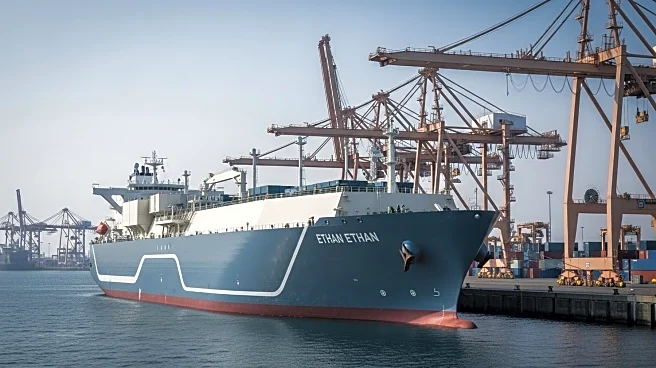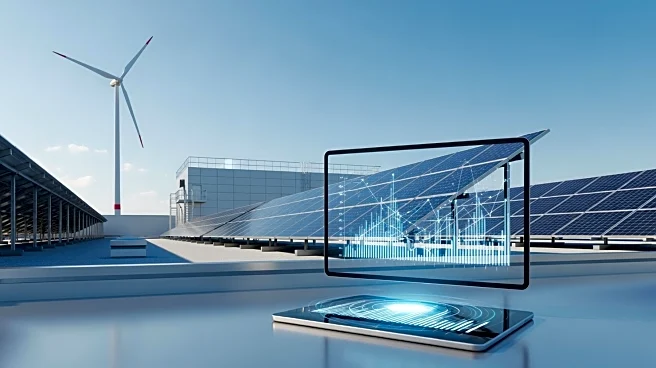What is the story about?
What's Happening?
ABS has granted two approvals in principle (AIP) for advanced cargo handling systems developed by HD Korea Shipbuilding & Offshore Engineering (HD KSOE) for liquefied natural gas (LNG) and ethane carriers. The first approval is for a subcooling refrigeration system that enhances refrigeration efficiency by over 10% by using a mixed refrigerant of both gas and liquid. This system aims to mitigate the risk of boil-off gas by supercooling LNG to temperatures below -170°C, maintaining optimal cargo integrity during transit. The second approval is for an advanced cargo handling and re-liquefaction system tailored for ethane carriers, designed to enhance operational efficiency and mitigate risks associated with ethane transportation. These systems are part of HD KSOE's efforts to localize core technologies in the shipbuilding industry.
Why It's Important?
The approval of these advanced systems by ABS is significant for the maritime industry, particularly in the transportation of LNG and ethane, which is expected to grow in the coming years. The enhanced efficiency and safety features of these systems could lead to more reliable and cost-effective shipping operations. This development supports the localization of shipbuilding technologies, potentially reducing dependency on foreign technologies and fostering innovation within the industry. Stakeholders in the maritime and energy sectors stand to benefit from improved operational efficiencies and reduced risks, which could translate into economic gains and enhanced competitiveness in global markets.
What's Next?
As the demand for LNG and ethane transportation increases, the implementation of these advanced systems could become a standard in the industry. HD KSOE's collaboration with ABS may lead to further innovations and certifications in ship systems, potentially influencing global standards in maritime transportation. The industry may see increased investments in similar technologies, driving further advancements in cargo handling and refrigeration systems. Stakeholders, including shipping companies and energy producers, will likely monitor the performance and adoption of these systems closely.















